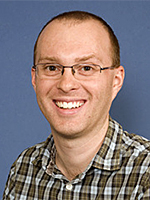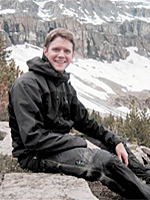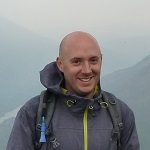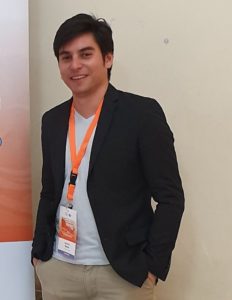Researcher Profiles

Dr Matthew Brain, PI
My research focuses on the geotechnical properties of soils and rocks and how understanding deformation processes in earth materials in a variety of environments and at a range of spatial scales can aid our understanding of landform and landscape evolution. In particular, I am interested in developing understanding of deformation mechanisms, styles and rates through detailed laboratory testing, informed by field measurements of stress and environmental conditions. I work with a range of Earth materials obtained from geomorphic settings that vary in lithology, from soft estuarine muds and peats to the strong regionally metamorphosed rocks of active orogens, and in terms of the magnitude of ambient stresses. My research has applications in low- and high-energy coastal geomorphology, rock-slope stability, landslide risk assessment, deep mining and Quaternary science.
Email: [email protected]

Prof Nick Rosser, Co-I
My primary research is focused upon the recognition of the role of material deformation characteristics in controlling the spatial and temporal nature of slope failure. My research extends new theoretical models which underpin the most recent developments in the understanding the mechanics of slope failure, from the laboratory to the field. From a risk management perspective this concerns broadly the critical elements of when, where and how slopes fail. I have led the development and use of 3D terrestrial imaging techniques for monitoring slope failure, and we now maintain arguably the most extensive monitoring dataset on rock slope failures worldwide. Original research on rockfall patterns is now being rolled-out into industrial applications in slope safety monitoring systems for mines via collaboration with leading SMEs in this field. More widely, I am actively engaged in research on natural hazards and risk, and the global and local impacts of disasters, reflected in the interests of those in my research group. The nature of this work, including its engagement with emerging technologies, requires interdisciplinary collaborations.
Email: [email protected]

Dr Mark Kincey, PDRA
My primary research focus is on understanding how anthropogenic land use practices influence the nature and rates of geomorphological processes, and in turn, how such processes then impact on people’s interactions with the environment. I have a particular emphasis on the impact of historical and contemporary mining on the physical environment, with my underlying motivation being to constrain physical and geochemical impacts of mineral exploitation, both at present and into the future, to help inform how legacy impacts are managed and how future mineral exploitation is planned. Recent and ongoing collaborative research includes monitoring of sediment and contaminant flux from eroding abandoned metal mines, upland sediment source connectivity following large storm events and analysis of quantitative linkages between mining-induced land subsidence and rates of coastal erosion. More recently, my research focus has expanded to consider interactions between natural hazards and anthropogenic land use, especially relating to patterns and impacts of landsliding in mountainous environments. This work has been driven by an ongoing DFID-funded project using remote sensing to analyse spatial and temporal variability in earthquake-triggered landsliding in Nepal following the 2015 Gorkha earthquake.
Email: [email protected]

Mr Ignacio Ibarre-Cofre, PhD Researcher
My PhD research focusses on the recognition and understanding of the effects of temperature cycles on rockfall activity. I am using an extensive historical monitoring dataset of 3D point clouds, which has been collected using a permanently installed laser scanner, to identify thermal signatures on rockfall dynamics. To understand the mechanisms that may allow temperature-controlled slope failures, I am using thermocouples and high-resolution infrared thermography monitoring to capture slope surface temperatures, and to assess the amplitude, gradient and accumulation of thermal stress fields acting within these slopes. The findings of my research aim to make progress towards the understanding of thermomechanical controls on the rock slope stability, and the potential impacts on slope hazard and evolution.
Email: [email protected]
Previous members of the COBRA research group:
- Dr Michael Lim: Associate Professor, Mechanical and Construction Engineering, Northumbria University
- Dr John Barlow: Lecturer, Department of Geography, University of Sussex
- Dr Stuart Dunning: Senior Lecturer in Physical Geography, Newcastle University
- Professor Robert Allison: Vice-Chancellor & President, University of Loughborough
- Professor Antony Long: Deputy Vice-Chancellor and Provost, Durham University
- Professor Dave Petley: Vice-President for Innovation, University of Sheffield
- Dr Ilona Kemeling: Director, Kemeling Consulting Ltd
- Dr Matthew Wright: Principal Scientist (Marine and Coastal) at Partrac Consulting
- Dr Melanie Geer: Geologist, ICL Boulby
- Dr Zuzanna Swirad: Postdoctoral Scholar, Scripps Institution of Oceanography, UC San Diego
- Dr Saskia de Vilder: Engineering Geologist, GNS Science
- Dr Simon Varley: Marine Geophysicist, Wessex Archaeology
- Dr Jess Benjamin: Modeller (Event Response), Risk Management Solutions (RMS)
- Dr Jack Williams: Postdoctoral Research Associated, Institute of Geography, University of Heidelberg
- Dr Emma Vann Jones, PDRA, Durham University
- Heather Bell: PhD researcher, University Centre in Svalbard
- Dr Siobhan Whadcoat, Adjunct Instructor, Department of Earth and Environmental Science, Temple University
